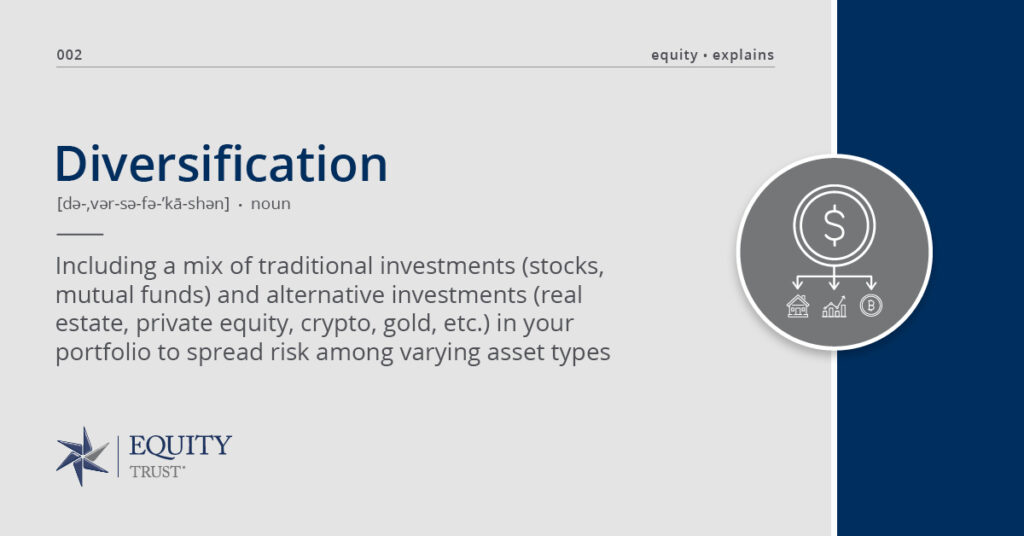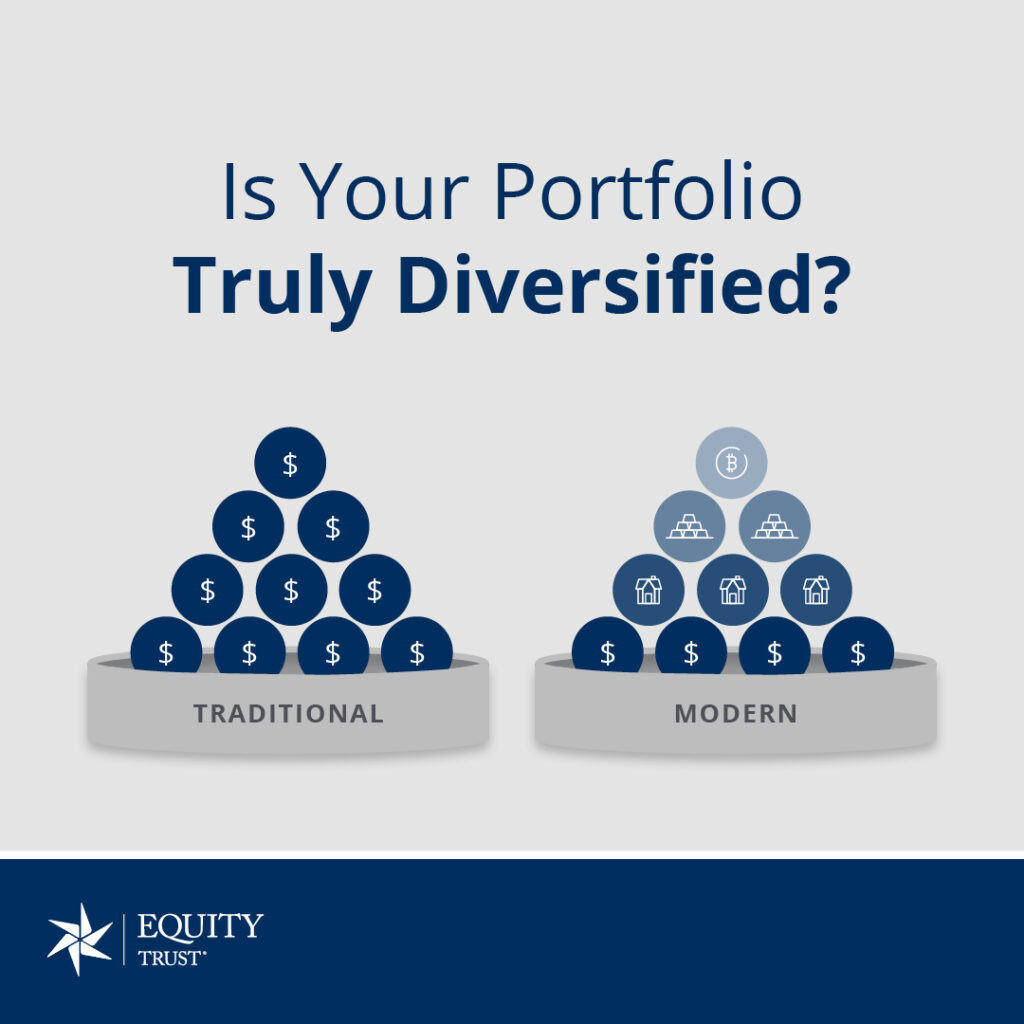Nearly Limitless Options
in One IRA
Invest in both traditional and alternative assets with a single custodian – ready to go beyond a self-directed IRA?
Investor Insights Blog|What is Diversification? Building a Resilient Retirement Portfolio with Traditional and Alternative Assets
Self-Directed IRA Concepts

While traditional financial wisdom provides a basic understanding of diversification, the concept has recently evolved to encompass a broader range of investment strategies. Understanding the true scope of diversification can help you broaden your investing and potentially your retirement income. Learn what true portfolio diversification means so you can expand your investment horizons.
Diversification in retirement investing involves holding a combination of traditional investments (such as stocks and mutual funds) and alternative investments in your portfolio.
Alternative investments are assets that fall outside the conventional investment categories and may provide unique opportunities for growth and risk mitigation. Alternative investments for retirement income may include real estate, private equity, hedge funds, and even assets like crypto or gold.
By incorporating alternative investments into your retirement portfolio, you could potentially reduce overall volatility, as these assets often have low correlations with traditional market movements. Additionally, alternative investments can offer the potential for higher returns, as they may capitalize on inefficiencies in less-explored markets.
However, it’s crucial to understand that alternative investments can also carry unique risks and may have lower liquidity compared to traditional investments. As with any investment decision, thorough research and consultation with a financial professional are essential to determine the appropriate allocation of alternative investments in your diversified retirement portfolio.

Many financial professionals explain diversification as varying the types of stocks in a retirement account or holding a combination of stocks and bonds. But this investment strategy limits the investor to traditional investments and doesn’t offer much risk diversification.
Many investors don’t have a diverse blend of traditional and alternative investments in their retirement account because they don’t realize they can do so. Some well-known IRA custodians such as Schwab and Fidelity may only offer the ability to invest in traditional assets, leaving investors unaware of all the possibilities for their retirement account.
Other custodians, known as self-directed IRA custodians, enable you to truly diversify your retirement account with traditional and alternative assets. The investment possibilities are extensive (the IRS provides only a small list of investments not allowed in an IRA – see Publication 590 for details), allowing for a potentially diverse mix of assets.
For example, a diversified portfolio at a custodian such as Equity Trust could have a mix of public and private assets. The account could include stocks, real estate, notes, and crypto – all in one IRA.
Related webinar: Is your IRA Truly Diversified?

Every investor is different, and you should always consult with a financial professional before investing to determine what’s right for you. When considering how diversification could look for you, here are some things to keep in mind:
Do:
Don’t:
Video: What is Diversification?
Now that you know more about true diversification, learn about some of the potential options for diversifying your retirement account.
In the on-demand webinar, “Is Your IRA Truly Diversified?”, Yieldstreet President Michael Weisz joins Equity Trust Head of Education John Bowens to discuss the potential benefits of private markets, varied asset classes, and how you can get started on Equity Trust’s platform, WealthBridge.
Watch the webinar to discover:
Equity Trust Company is a directed custodian and does not provide tax, legal or investment advice. Any information communicated by Equity Trust is for educational purposes only, and should not be construed as tax, legal or investment advice. Equity Trust is not a fiduciary and does not endorse, recommend, or opine on suitability of any specific asset class or investment. Investing involves risk, including possible loss of principal. Whenever making an investment decision, please consult with your tax attorney or financial professional.
You are leaving trustetc.com to enter the ETC Brokerage Services (Member FINRA/SIPC) website (etcbrokerage.com), the registered broker-dealer affiliate of Equity Trust Company. ETC Brokerage Services provides access to brokerage and investment products which ARE NOT FDIC insured. ETC Brokerage does not provide investment advice or recommendations as to any investment. All investments are selected and made solely by self-directed account owners.
Continue